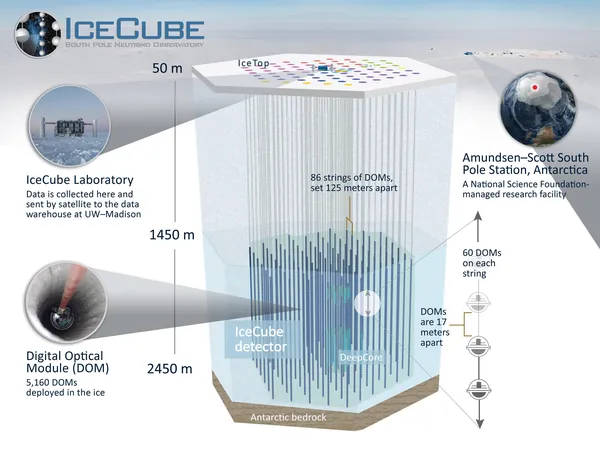
NASA Teams Up with Microsoft to Launch Game-Changing AI Tool for Earth Science Data
2024-11-18
Author: Siti
Introduction
In a revolutionary move for environmental research, NASA has announced a groundbreaking partnership with Microsoft to introduce ‘Earth Copilot’, an innovative AI-powered tool aimed at simplifying access to crucial Earth science data. Utilizing Microsoft’s cutting-edge Azure cloud platform, this powerful tool allows users to engage with NASA’s extensive datasets through simple conversational queries.
Imagine being able to ask, “How did Hurricane Ian impact Sanibel Island?” and receiving comprehensive, relevant results in seconds—no technical jargon required. This user-friendly approach is set to eliminate barriers that have traditionally hindered many from accessing complex datasets vital for climate research, disaster management, and education.
NASA's Data Repository
NASA's Earth Science Data Systems Program encompasses a vast repository of information collected from satellites, detailing everything from air quality to oceanic conditions. Historically, navigating and analyzing such immense volumes of data necessitated a high degree of technical skill, but this new AI partnership aims to democratize that access.
Integration with Microsoft AI Technology
The integration of Microsoft’s AI technology with NASA’s existing data platform, VEDA, streamlines the data search and analysis process, making it significantly more efficient. This advancement not only benefits researchers and policymakers but also empowers educators to inspire students with real-world scientific data. Minh Nguyen, a Microsoft Cloud Solution Architect, highlights the tool's potential to aid underserved communities in tackling local challenges through data-driven insights.
Expert Insights
Former NASA engineer Juan Carlos López, now an Azure Specialist at Microsoft, emphasized the design's ability to handle complex queries and large datasets with ease. "Our objective is to create a scalable solution that adapts alongside NASA’s evolving data landscape, allowing users to swiftly find exactly what they need without diving into technical nuts and bolts," he stated.
Current Status and Future Plans
Earth Copilot is currently under testing by NASA researchers, with plans for a wider rollout that aligns with NASA’s Open Science initiative—an endeavor designed to enhance transparency and inclusivity in scientific research. This partnership not only promises to change the way we interact with Earth science data but also aims to extend its reach and impact across various fields, from climate studies to education.
Conclusion
As the technological landscape continues to evolve, tools like Earth Copilot are poised to transform our understanding of the planet, making vital data accessible to everyone. Stay tuned for more updates on this exciting initiative that could very well change the future of environmental research!




 Brasil (PT)
Brasil (PT)
 Canada (EN)
Canada (EN)
 Chile (ES)
Chile (ES)
 España (ES)
España (ES)
 France (FR)
France (FR)
 Hong Kong (EN)
Hong Kong (EN)
 Italia (IT)
Italia (IT)
 日本 (JA)
日本 (JA)
 Magyarország (HU)
Magyarország (HU)
 Norge (NO)
Norge (NO)
 Polska (PL)
Polska (PL)
 Schweiz (DE)
Schweiz (DE)
 Singapore (EN)
Singapore (EN)
 Sverige (SV)
Sverige (SV)
 Suomi (FI)
Suomi (FI)
 Türkiye (TR)
Türkiye (TR)